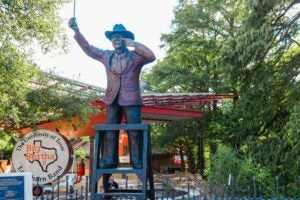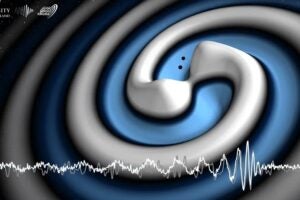AUSTIN, Texas — A better understanding of ants and the important roles they play in our ecology will be shared next week with a small group of area high school biology teachers who will visit The University of Texas at Austin’s ant research facility as part of an experimental workshop project.
The biology teachers will study various kinds of ants and learn how these tiny creatures are a strong indicator of the ecological health of a particular area. Ants are such a good indicator, in fact, that scientists are using them in some experiments to study ecological changes resulting from habitat destruction and global warming.
About 10 area high school biology teachers and one college teacher will participate in the Ant Ecology, Behavior and Diversity Workshop, which is intended to be the first in a series of educational workshops headed by Professors Ulrich Mueller and Larry Gilbert of the section on integrative biology, School of Biology. Gilbert also is director of the Brackenridge Field Laboratory, 2900 block of Lake Austin Blvd., where the workshop will be held on Tuesday and Wednesday (May 30 and 31).
The workshop begins each of the two days at 7:30 a.m. and includes outdoor field work as well as laboratory experiments in the research facility. Gilbert said the participants were selected for their enthusiasm and interest in passing this new knowledge along to their students.
Mueller said the destructive and financially costly aspects of some ants, including fireants, will be discussed, but the teachers also will learn about some benefits ants provide, such as helping to control the spread of nuisance bugs and garden pests which could damage crops, lawns and gardens.
The workshop is sponsored by grants from the National Science Foundation and the Texas Fire Ant Research and Management Project, and is hosted by the UT Austin Brackenridge Field Laboratory.
For additional information, contact Mueller at (512) 232-5775, or Gilbert at (512) 471-4705 or (512) 471- 3835.



